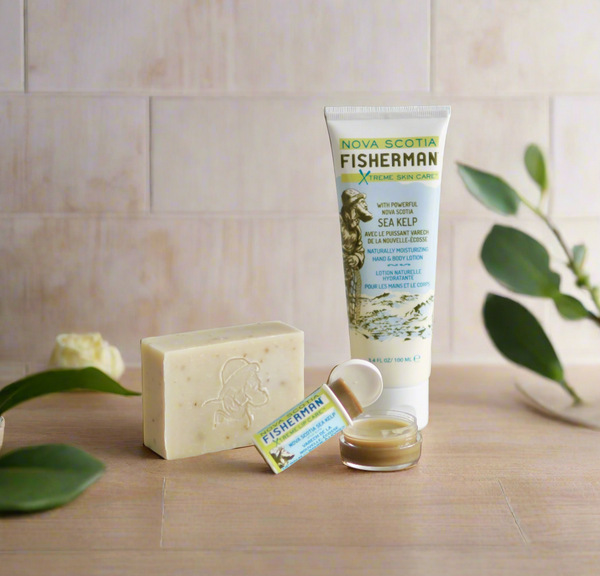Your Cart is Empty

How Changing Weather Affects Your Skin
April 17, 2019 3 min read
Canada - a vast, beautiful place full of diverse people, wildlife, ecosystems, and.. changing weather patterns.
Depending on where you are in Canada, one could experience snow, hale, rain, sun, high winds, and freezing temperatures (all in the same day). On the Atlantic coast, the temperatures can change significantly, sometimes in only a matter of hours.

In these cases, you can only be prepared and deal with what comes. However, in the long run, we do have the opportunity to plan for the seasons and the impacts the changing weather will have on our body’s biggest organ, our skin.
How the climate changes impact our skin:
Oil & Sebum Secretion - When the temperature increases, the natural oils secreted by your skin become active and thin. The oils will tend to gather in the pores, and without proper exfoliation or cleansing, can lead to skin irritation like acne or breakouts. Also humidity causes excessive sebum secretion = oily skin. Think spring on the Atlantic, or winter in BC. This can act as a magnet for dirt and pollutants, sticking to your skin and trapping within your pores. To prevent acne causing bacteria it’s important to exfoliate, remove the dirt from the pores, and cleanse gently.
In the opposite scenario, a cold and dry climate, the lack of moisture in the air causes your skin to dry out, increasing the appearance of wrinkles (pre-mature aging) and chance of irritation / flaking. The oils secreted from your skin tend to dry out, or become more solid, clogging pores.

Dry skin buildup - During the winter, many people find their skin becomes cracked, itchy, tight, and red. If the climate is dry, your skin will naturally become dry too, causing dull, flaky skin. Dead skin cells can accumulate on the surface and act as a barrier, preventing oils to transfer, and from moisturizers to enter and perform their job. ie - that amazing sea kelp moisturizer or serum you just purchased won’t get a chance to reach your pores. When the air around you is drier, be sure to exfoliate and cleanse regularly.

How can you take care of your skin during these seasonal transitions?
During colder, dry weather (fall/winter):
- Moisturize liberally, and find a cream / lotion that has a rich base (ex: Seabuckthorn & Shea, Deck Hands)
- Avoid taking long, hot showers. This can strip away any natural oils that create a barrier to protect your skin.
- Avoid harsh soaps and detergents. Many common liquid soaps, or less expensive bars contain chemicals and preservatives that strip oils from your skin. Natural oil cleansers or soap bars (see our Sea Kelp Soap Bars), replenish the natural moisture content of the skin, preventing dry outs and pre-mature aging.
- Exfoliate 1-2 a week with a mild exfoliant or bar (ex: our Salt n' Sea Body Scrub). This helps remove dead skin cells and prevent build up.
- Don’t forget your lips! Using a balm with a natural protectant (ex: Our Sea Kelp Lip Balm with Beeswax), will kelp (get it?) retain moisture and protect against high winds.

During warmer, humid weather (spring/summer):
- Moisturize daily. If you have larger pores, or a tendency to break-out easily, find a cream / lotion that is lighter in consistency and natural oil-based (like our Original Sea Kelp Lotion, Bayberry & Sea Fennel Lotion). These lighter, natural moisturizers will allow your pores to breath, will dry quickly, and won’t cause acne/breakouts.
- Include hot showers a few times a week (especially for those with oily skin). This can help prevent excess sebum build up and breakouts.
- Exfoliate 1-2 a week with a mild exfoliant or bar (ex: our Forest Charcoal Soap). This helps remove dead skin cells, prevent build up, and control excess sebum.
- Drink lots of water and remain hydrated.

Simple tips that will make a big difference in how your skin looks and feels. Choosing the right products, avoiding harsh chemicals, and being pro-active can help retain your skin’s health in any climate/season.
Shop Natural Skin Care
Leave a comment
Comments will be approved before showing up.
Subscribe
Sign up to get the latest on sales, new releases and more …

Receive 15% OFF Your First Order
Plus First Updates on Sales, New Products & FREE SHIPPING on Orders $100+ (Canada & USA)
